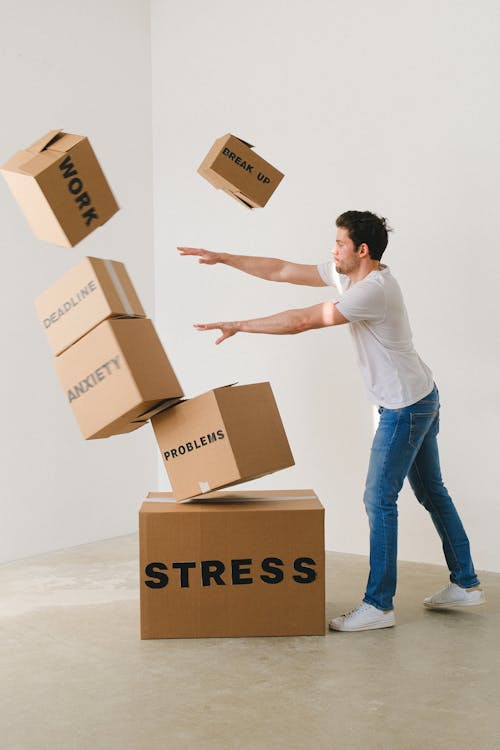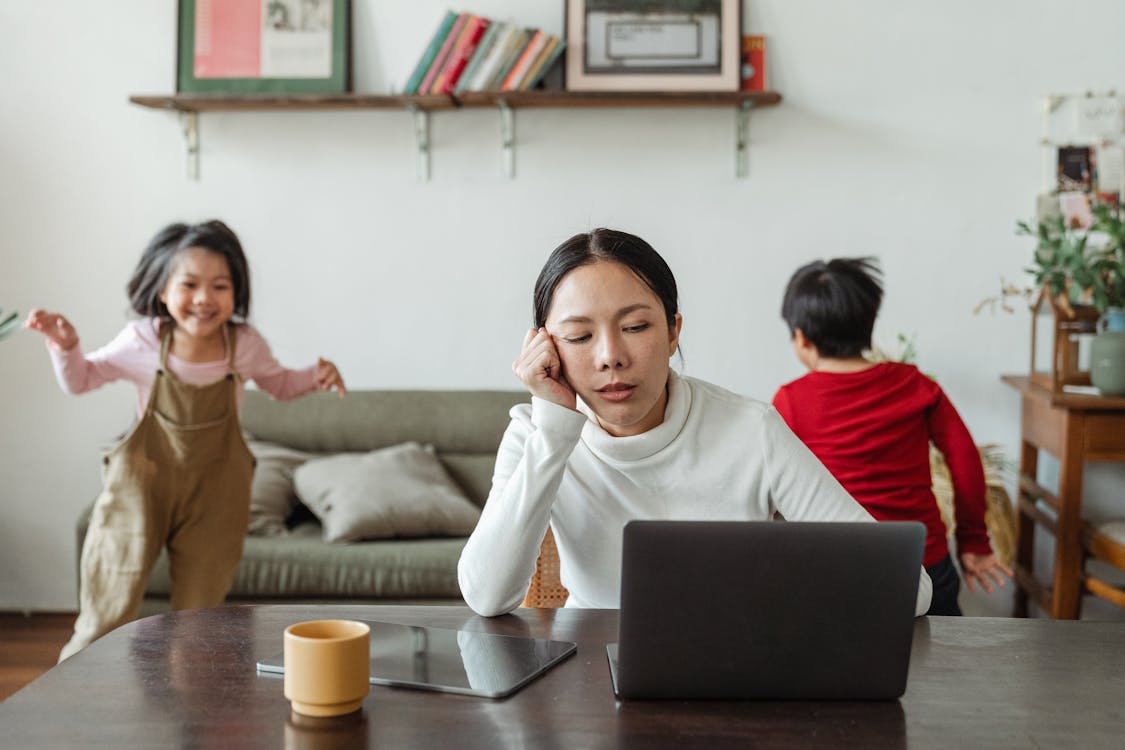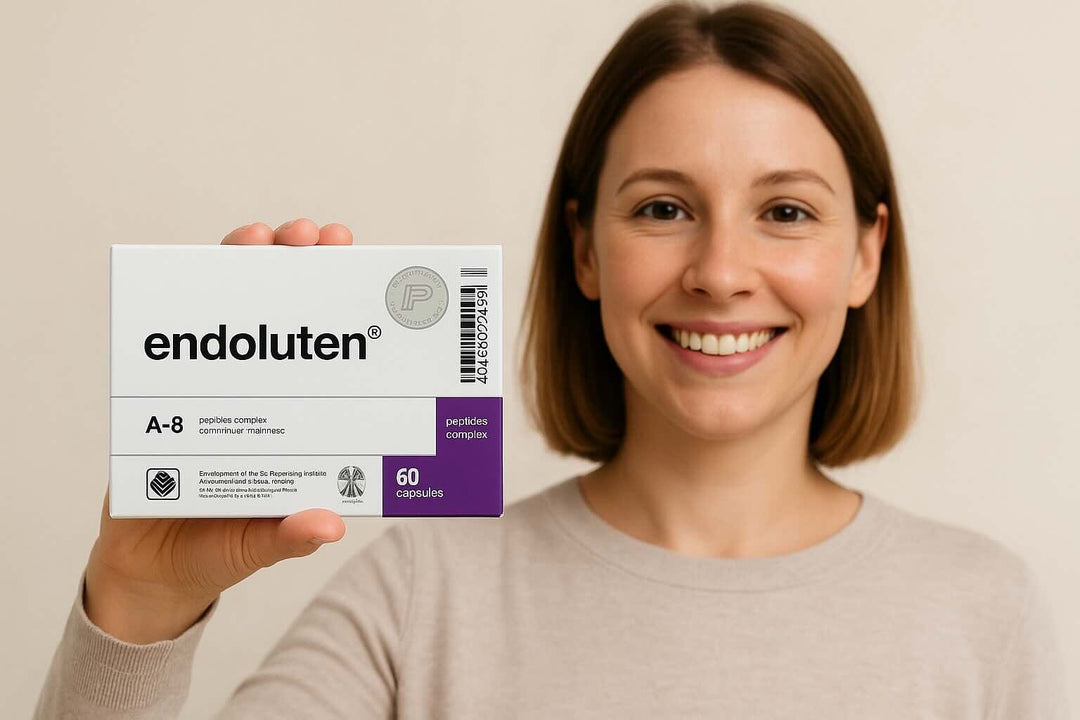Dealing with anxiety is a long journey, but it’s doable. Click here to learn more about anxiety and how to deal with it.
Do you suffer from anxiety? You’re not alone. According to the Anxiety and Depression Association of America (ADAA), anxiety is the most common mental illness in the United States, affecting about 18% of the population, or roughly 40 million adults.
Luckily, dealing with anxiety and even living a healthy life with it isn’t impossible, provided that you take the right steps to improve your mental condition.
What Is Anxiety and What Causes Anxiety Attacks?
Anxiety is a mental health condition that makes you feel more nervous and fearful than usual. It may also make you sweat more and cause your heart to beat faster.
However, it’s worth noting that everyone may experience some form of anxiety every now and then. It’s fine to feel nervous or scared in situations like job interviews, first dates, and bungee jumping.
But when these fearful feelings get out of control, to the point that you’re unable to control your response in different situations, have a history of overreacting to emotional triggers, or have problems functioning properly, you might have an anxiety disorder.
The exact cause of anxiety isn’t yet known to scientists. However, you might have a higher risk of developing anxiety if you:
- Have a family history of anxiety. If you had parents or grandparents with anxiety or other mental conditions, you might be at higher risk of developing anxiety at some point in your life.
- Are a woman. Women are more likely to develop anxiety, and anxiety symptoms in women are often stronger than in men. This is likely due to hormonal disruptions caused by low testosterone.
- Experienced trauma. Getting traumatized, especially in childhood, makes you more vulnerable to anxiety attacks.
- Have specific personality traits, like feeling uncomfortable or shy around unfamiliar people and in unknown places.

Types of Anxiety Disorders
Anxiety disorders can be categorized into the following subgroups:
- Generalized Anxiety Disorders. These disorders cause unexplained and unrealistic worries and fears, usually for little to no reason.
- Panic Disorders. Panic disorders are often associated with panic attacks that induce symptoms like chest pain and tightness, sweating, and a pounding heartbeat.
- Separation Anxiety. This type of anxiety kicks in when a loved one leaves your sight, especially if you used to live in the same house. You’ll always be scared that they may get harmed.
- Medication-Induced Anxiety Disorder. Some medicines or drugs may cause anxiety as a side effect of abuse or withdrawal.
- Selective Mutism. Selective mutism is a form of anxiety that’s often observed in young kids. For example, if the kid normally talks with their family in private but won’t talk with others in public, this is one of the surefire ways to identify selective mutism.
- Phobias. Certain phobias like fear of elevated places may induce fearful emotions that can be categorized as anxiety.
Symptoms of Anxiety Disorder
Symptoms of anxiety disorder may vary from one person to another. It’s also important to remember that these symptoms could be due to other underlying physical or mental conditions.
So, it’d be best for you to consult your family doctor before making any assumptions about your health, especially if you’re experiencing severe anxiety symptoms.
Physical Symptoms of Anxiety
- Cold and sweaty hands and feet
- Numbness
- Heart palpitations
- Inconsistent sleep quality accompanied by insomnia-like symptoms
- Shortness of breath
- Hyperventilation (heavy breathing)
- Dizziness
- Dry mouth
- Nausea
- Muscle tension
Mental Symptoms of Anxiety
- Panic and fear feelings
- Obsessive avoidance of feared things and places
- Inability to stay calm and still
- Repetitively thinking about a specific problem
- Poor concentration and lack of productivity at work

Anxiety Treatment
There are multiple ways to deal with anxiety, which include:
Psychotherapy
Psychotherapy treatment for anxiety is usually done with one of the following techniques:
- Cognitive-behavioral therapy (CBT). CBT gives you the opportunity to identify the patterns that trigger the symptoms of anxiety so you can figure out ways to change them.
- Exposure Therapy. In exposure therapy, the therapist may deliberately expose you to fearful situations that you’ve been avoiding, accompanied by relaxation exercises.
Medication
Several types of medications are used to ease the effects of anxiety. However, none of them truly “cure” anxiety. They include:
- Antidepressants. SSRIs like escitalopram (Lexapro) and SNRIs like venlafaxine (Effexor) are commonly used to mitigate anxiety. Other less abundant antidepressants such as tricyclics and monoamine oxidase inhibitors (MAOIs) may be used to manage anxiety symptoms, but they aren’t usually recommended as their side effects can be severe.
- Benzodiazepines. Benzodiazepines, like alprazolam (Xanax) and clonazepam (Klonopin), are used to reduce the severity of panicky feelings during anxiety attacks. However, this type of medication is more of a short-term than a long-term solution as you may become too reliant on them.
- Beta-blockers. Beta-blockers may work for you if your anxiety is causing physical symptoms like shaking and fast heartbeats. Consuming them will make you feel calmer and reduce your anxiety.
- Antipsychotics. Antipsychotics are sometimes used with other medications to combat anxiety.
- Anticonvulsants. These are originally used to prevent seizures in epilepsy patients, but your psychotherapist may prescribe them for you to reduce your anxiety symptoms.
- Bupropion. This antidepressant is only prescribed in case of chronic anxiety.
Self-Treatment
Here are some of the things you can do to mitigate anxiety:
- Accept it. The first thing you need to do to deal with anxiety is to accept that it’s there. If you deny the presence of a problem, you won’t be able to control it.
- Limit or cut caffeine intake. Caffeine can impact your mood in a way that magnifies anxiety symptoms, so limiting its intake or cutting it off may help.
- Follow a balanced diet. Eating right will make you feel less self-conscious and more energetic, which is great for combating anxiety disorders.
- Manage negative thoughts properly. Negative thoughts are the primary trigger of anxiety, so by distracting yourself with positive thoughts, you might be able to feel better.
- Sleep well. Getting enough sleep every night can do wonders for your brain, which will consequently make you feel less anxious.
- Meet your loved ones. Hanging out with family and close friends will definitely make your anxiety symptoms less noticeable.
- Read about it. Increasing your awareness about your condition will make you feel more prepared and help you manage your symptoms more effectively.
- Talk about it. Bottling up your feelings of anxiety will make your symptoms worse over time. Try talking about the whole thing with a loved one who understands and supports you.
- Limit alcohol intake. Overconsumption of alcohol will only worsen your anxiety, so limited or cutting off alcohol would be the healthier choice here.
- Take deep breaths. This little exercise can be quite handy when an anxiety attack kicks in. All you have to do is inhale and exhale slowly to feel relaxed, and this will reduce your anxiety attack symptoms.
- Appreciate the minor improvements. If you even feel slightly better about your anxiety, be proud of yourself and celebrate it! This will help you feel way better than seeking perfection.
- Try yoga. Yoga exercises are highly recommended for anxiety disorder patients as yoga can make them feel calmer and more relaxed. It’s also great for controlling breath.
- Laugh more. Do some goofy stuff with your friends or watch comedy sitcoms on Friday nights to think less about anxiety.
- Exercise regularly. A well-planned exercise routine is one of the most established ways to manage anxiety, as physical activity reduces stress and improves your mood. Try to do around 1.25 hours of high-intensity exercises (HIIT, weight lifting, swimming) and 2.5 hours of moderate-intensity exercises (brisk walking, jumping jacks, etc.) every week.
- Listen to music. Music can help reduce the hormones that induce stress; thus, it can play a role in relieving symptoms of anxiety. Also, consider listening to some music when exercising. You want your workout sessions to be fun, not boring, at least if you want to get the most out of them.
Prevention
Unfortunately, there aren’t any proven ways to prevent the onset of anxiety. However, you might still be able to avoid specific types of it.
For example, a medication-induced anxiety disorder may be prevented by avoiding the drugs or medications that have a strong potential to cause anxiety.
Other than that, you can’t really control whether you’ll develop anxiety or not. What you can control are its symptoms.
Conclusion
Dealing with anxiety may not be the prettiest experience ever, but taking action to treat it is always a better idea than letting it consume you.
You can slowly start with self-treatment, like exercising more, eating healthy, and cutting off caffeine. And if you still don’t feel any noticeable improvement, consult a psychotherapist, and they’ll help you feel better through therapy, medication, or a combination of both.
It’s still important to continue with the self-treatment practices throughout your treatment time, focusing more on the activities that your psychotherapist recommends.





